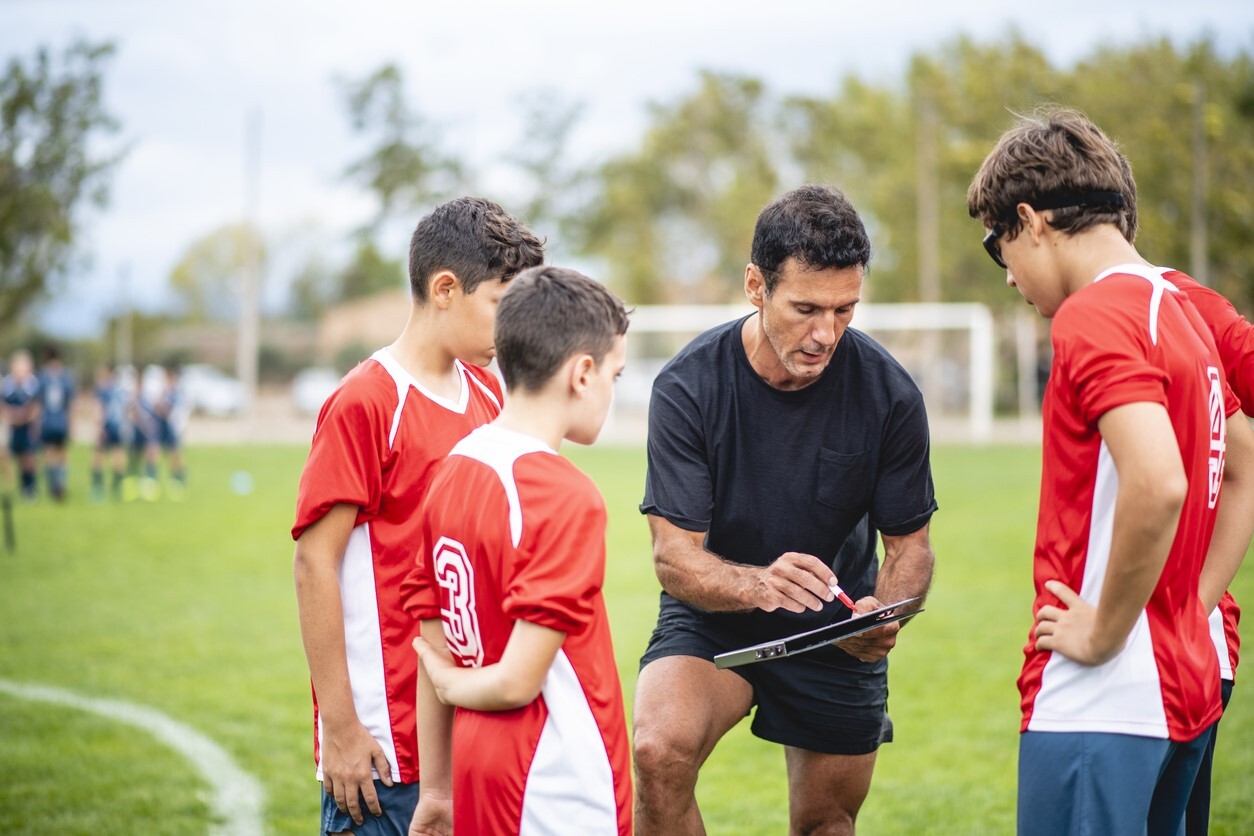Welcome to the ultimate guide on sports coaching, where we delve deep into the art and science of coaching in various sports disciplines. Whether you’re a seasoned coach looking to refine your skills or someone aspiring to embark on a coaching journey, this article is your go-to resource.
Sports Coaching Strategies for Success

Setting Clear Objectives and Goals
In sports coaching, setting clear objectives and goals is paramount. It not only provides direction but also motivates athletes to strive for excellence. Whether it’s winning a championship or personal skill development, defining objectives lays the foundation for success.
Crafting objectives involves identifying specific, measurable, achievable, relevant, and time-bound (SMART) goals. These goals serve as benchmarks for progress and enable coaches to tailor their training programs accordingly.
Effective Communication Techniques
Communication lies at the heart of effective coaching. Coaches must master the art of conveying instructions, providing feedback, and fostering a positive team environment. Clear and concise communication ensures that athletes understand their roles, responsibilities, and areas for improvement.
Utilizing active listening techniques is equally important. By attentively listening to athletes’ concerns and feedback, coaches can establish trust, strengthen relationships, and address any issues promptly.
Utilizing Data and Technology
In the modern era of sports coaching, data, and technology play a pivotal role in enhancing performance. From tracking athletes’ progress to analyzing game statistics, coaches have access to a wealth of information that can inform their decision-making process.
Utilizing wearable devices, video analysis software, and performance-tracking tools enables coaches to identify trends, pinpoint weaknesses, and devise tailored training programs. By embracing technology, coaches can stay ahead of the curve and maximize their team’s potential.
Psychological Resilience and Motivation
Sports coaching extends beyond physical training; it encompasses mental and emotional resilience as well. Coaches must inspire and motivate their athletes, especially during challenging times. Building resilience fosters a growth mindset, enabling athletes to bounce back from setbacks and perform at their best.
Implementing motivational techniques such as goal setting, visualization, and positive reinforcement can significantly impact athletes’ confidence and performance. By instilling belief and determination, coaches empower their athletes to overcome obstacles and achieve greatness.
Adapting to Individual Learning Styles
Every athlete is unique, with distinct learning styles and preferences. Successful coaches recognize this diversity and tailor their coaching approach accordingly. Whether it’s visual, auditory, or kinesthetic learning, adapting to individual preferences maximizes the effectiveness of training sessions.
By incorporating varied teaching methods, such as demonstrations, verbal cues, and hands-on drills, coaches cater to different learning styles and ensure that every athlete receives personalized instruction. This inclusive approach fosters skill development and cultivates a supportive learning environment.
Building Team Cohesion and Chemistry
Team cohesion is the glue that binds athletes together and drives collective success. Coaches play a pivotal role in fostering a sense of belonging, camaraderie, and mutual respect among team members. Building strong relationships and fostering open communication cultivates a cohesive team culture where every member feels valued and supported.
Organizing team-building activities, promoting collaboration, and celebrating milestones are effective strategies for strengthening team chemistry. By fostering a positive team environment, coaches lay the groundwork for sustained success on and off the field.
Frequently Asked Questions (FAQs)
What qualifications are required to become a sports coach?
To become a sports coach, individuals typically need a combination of relevant qualifications, such as coaching certifications, first aid training, and a strong understanding of the sport they wish to coach. Additionally, practical experience and communication skills are essential for success in the field of sports coaching.
How can coaches effectively motivate their athletes?
Coaches can motivate their athletes by setting clear goals, providing constructive feedback, and fostering a supportive environment. Recognizing and celebrating achievements, instilling belief, and leading by example are also effective motivational strategies.
What role does sports psychology play in coaching?
Sports psychology encompasses various techniques and principles that help coaches understand and enhance athletes’ mental well-being and performance. From building resilience to managing stress and anxiety, sports psychology equips coaches with valuable tools to support their athletes’ holistic development.
How important is physical conditioning in sports coaching?
Physical conditioning is fundamental in sports coaching as it directly impacts athletes’ performance, endurance, and injury prevention. Coaches design training programs that focus on strength, speed, agility, and flexibility to optimize athletes’ physical capabilities and overall fitness levels.
What are the key responsibilities of a sports coach? The key responsibilities of a sports coach include planning and delivering training sessions, analyzing performance data, providing feedback and guidance, managing team dynamics, and promoting a positive team culture. Coaches also play a crucial role in developing athletes’ skills, confidence, and character.
How can coaches effectively manage team conflicts?
Coaches can effectively manage team conflicts by promoting open communication, addressing issues promptly and impartially, and fostering a culture of respect and understanding. Implementing conflict resolution strategies and encouraging collaboration can help resolve conflicts and strengthen team cohesion.
Conclusion
In conclusion, sports coaching is a multifaceted endeavor that requires dedication, expertise, and a passion for excellence. By implementing proven strategies, embracing innovation, and prioritizing athlete development, coaches can elevate their coaching game and unlock their team’s full potential.

